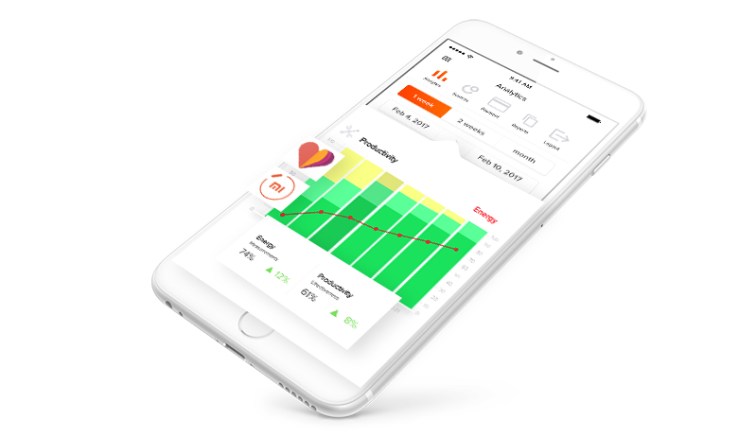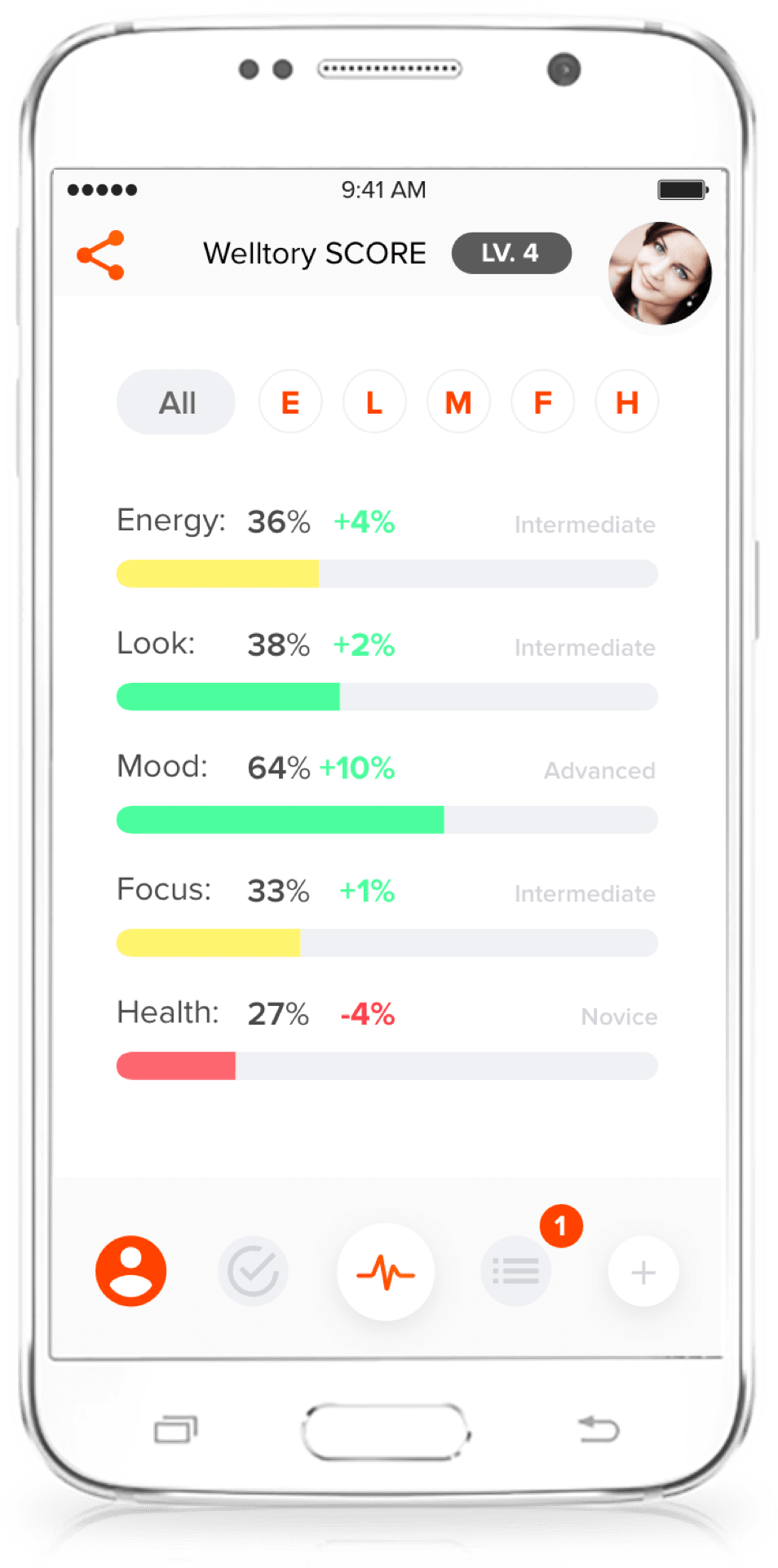Welltory packs a lot of science into its app to measure your stress levels

There’s a lot of talk about the quantified self, but one of the grey areas remains working out your levels of stress. Usually this requires hardware devices. Now a New York-based startup thinks it’s come up with an approach based on specially developed algorithms and machine learning using simple heartbeat readings taken with a smartphone app.
Welltory (iOS, Android) has also now closed its second investment round, raising $1 million from business angels. This is being used to launch the next version of the app, which is aimed at cutting down your stress levels and boosting your productivity. Luckily the app is, in my opinion, a joy to use in terms of interface and over-all usability.
Here’s their idea: Google Analytics for humans, complete with AB-testing features and KPI goals. The idea is to work out the effect of how, for instance, morning meditation, working from home or a diet change might affect stress and energy levels. You then keep what works for you and discard what doesn’t.
While the main measurement comes through measuring your heartbeat, using the same PPG technology found in most pulse oximeters, it then applies variability algorithms to assess the state of the “autonomic nervous system” — the body’s stress and recovery regulation center. That’s how they come up with stress and energy levels.
In fact, this is the same technique used by professionals in sports. The Red Wings hockey team relies on HRV analysis to track training and recovery with Firstbeat. Similarly, NBA players like DeAndre Jordan and Matthew Dellavedova wear HRV-based WHOOPs during games.

But Welltory is aiming to bring this kind of monitoring to the masses.
Competitors in this space are usually hardware-based, such as the aforementioned WHOOP (which is a $500 device) and Firstbeat, which has several hardware partners.
Welltory is free as a basic version, but the paid version of the Welltory app has a Quantified Self Dashboard, which lets users collect data about their lifestyles.
It also can be synced with fitness trackers and Fitbits, Apple Health and Google Fit to collect data about sleep, nutrition and physical activity. It also supports RescueTime (a desktop-based productivity tracker), home weather stations that track your surroundings and more.
Over time it generates charts for you to work out correlations between behaviors. So for instance, you can see if walking an extra mile a day helps stress levels, or see if meditation sessions are affected by the weather that day.
Jane Smorodnikova, co-founder, says the “Quantified Self” remains a mystery to most, so bringing all the data together in one interface helps explain it. “They can see how their activity influences their stress, how many hours of sleep they need to recover properly and what lifestyle habits influence their productivity at work. Stress and energy measurements is the key that connects the dots of your lifestyle data and makes it easy to get real insights.”
Welltory says it currently has 125,000 users and 650,000+ heart rate variability measurements. It’s also got a healthy growth in paid users.
Co-founders Alexander Lyskovsky, Jane Smorodnikova and Pavel Pravdin are all quantified self aficionados who come from engineering backgrounds who wanted an approach based on science and hard data. They were advised by Professor Roman Baevsky, a space medicine expert who is currently a consultant at NASA and the Mars 500 project, who applied heart rate variability to the space program in the 1960s.